The Life of a Champion

Best Ever Conference 2020 Speaker: Andre Reed, Buffalo Bills Hall of Fame Wide Receiver
Lesson #1: Value your huddle
Everyone on your team needs to be on the same page. Everyone needs to know what the game plan is and everyone needs to execute the game plan. Everyone needs to respect each other and listen to each other’s input and feedback.
Champions lead by influence, not authority.
Lesson #2: Know your role
Champions know what they are the best at and what everyone on their team is the best at. Everyone focuses on their strengths for the betterment of the team.
Lesson #3: You win some and you lose/learn some
Champions know that things will not always go according to the plan. They know how to handle things when everything goes wrong and make it out the other side stronger.
Lesson #4: Champions aren’t randomly made
Being a champion is not based on luck. It is not a shake of the 8ball. It comes from hard work and following lesson #1, #2, and #3.
The State of Multifamily
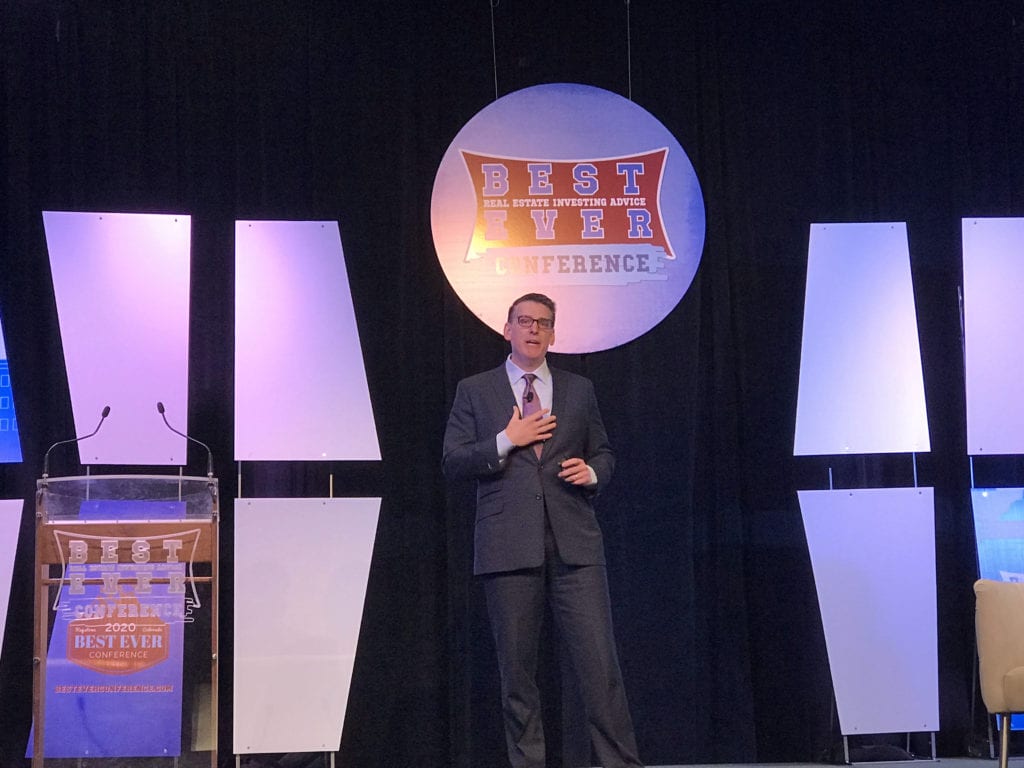
Speaker: John Sebree
Lesson #1 From This Best Ever Conference 2020 Session: New jobs have been the major driver of the economic expansion
There have been 112 months of continuous job gains. Job growth is greater in the south than in the Midwest and northeast over the past three years. However, the US currently has more job openings than people seeking to work because of the disconnect between the skills required for the job openings and the skills of the people who are unemployed.
Lesson #2: Housing construction has fallen short of demand.
From 2000 to 2007, there was an oversupply of 2.5M units. From 2008 to 2020, there is an undersupply of 1.5M units.
Lesson #3: Class C is in demand
Most new construction has been Class A multifamily, so there has been and will continue to be demand for workforce housing, which is reflected by the lower vacancy rate and higher rent growth in Class B vs. Class A.
Lesson #4: Secondary and tertiary markets are in demand
More deals are being done and will continue to be done in secondary and tertiary markets due to the high level of competition in primary markets.
Best Ever Conference 2020 Panel: The Age of Data

Speakers: Michael Cohen – CoStar Group, Jeff Adler – Vice President, Yardi Matrix, Jilliene Helman – CEO, RealtyMogul
Lesson #1: How CoStar collects data
CoStar has over 1000 researchers who are working with the real estate community to collect data, but they are also moving towards internet listings services (ILS) like Apartments.com. They are also using military grade technology, drones, and cars to collect data.
Lesson #2: How Yardi collects data
Yardi has 600 people who independently collect and curate data, which is supplemented with information from property management companies.
Lesson #3: Tips on finding deals
If you are doing broker listed deals, you will overpay and that needs to be offset by focusing on markets with a high net migration.
You can look at Yardi loan maturity data to find owners whose loans are coming due. Come up with a valuation before reaching out to the owner.
Invest in markets where institutional money hasn’t gone to yet.
Fireside Chat: Asset Protection – Shielding Your Financial Empire
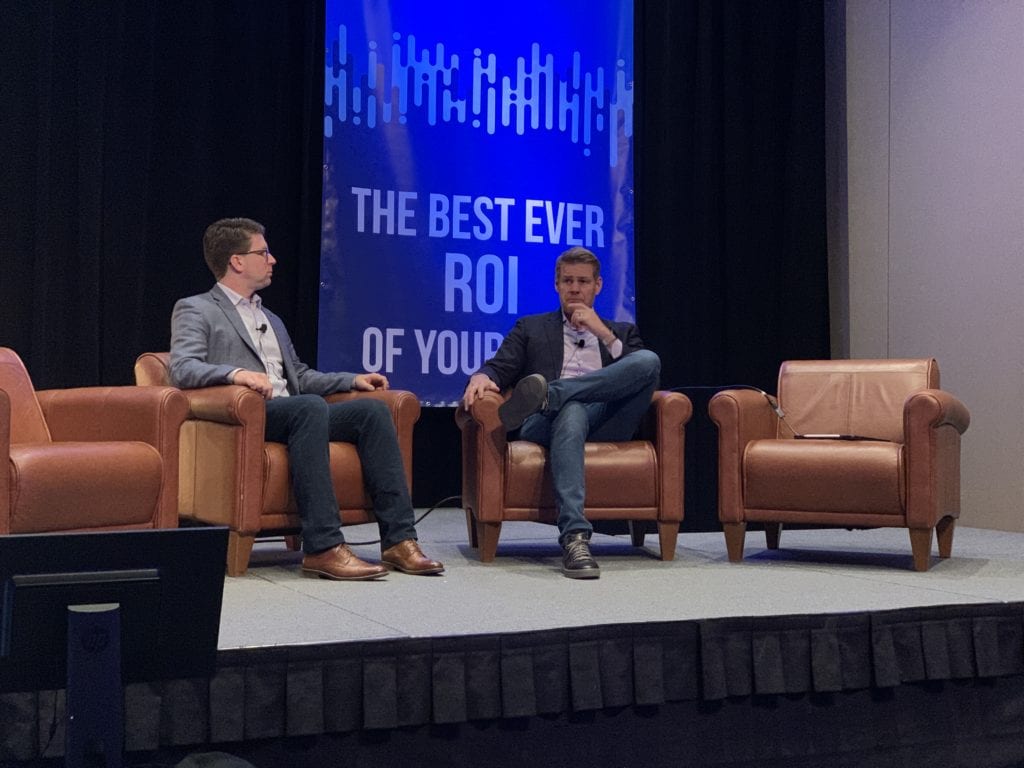
Speakers: Ryan Gibson – Founding Partner, Spartan Investment Group, Clint Coons – Anderson Advisors
Lesson #1 From This Best Ever Conference 2020 Session: Invest through a trust or LLC
Sponsors will not ask you if you are involved in a lawsuit, divorce, etc. Investing through a trust or LLC protects your investment from these and other outside concerns.
Setting up the trust or LLC in Wyoming or Delaware creates anonymity. Should you be sued, assets of the LLC cannot be accessed by creditors.
Lesson #2: How to screen a sponsor before investing
Always do a background check on the operator. Always speak with their other investors.
Accelerate Your Success Through Multifamily Syndication
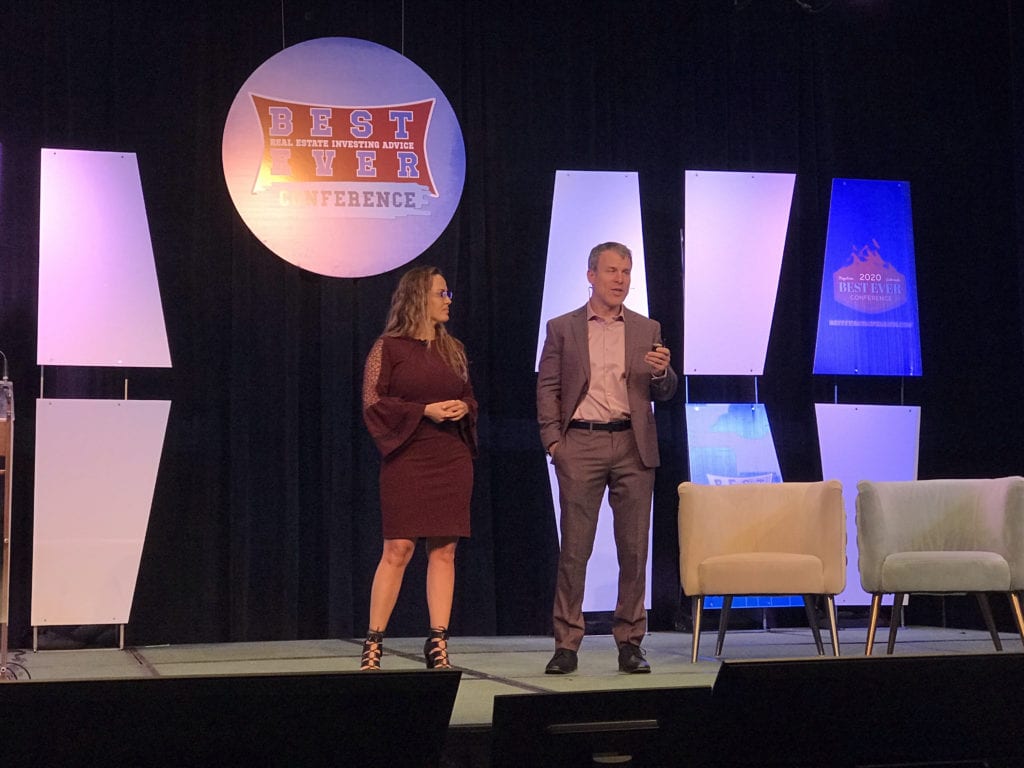
Speakers: Mark and Tamiel Kenney – Co-Founder, Think Multifamily
Lesson #1: Have a strong why
They transitioned from W2 jobs to apartment syndications in order to save their marriage and to spend more quality time with their kids. Now, their clients are an extension of their family.
Lesson #2: Why multifamily is better than single family
Multifamily has better economies of scale. You can secure nonrecourse debt on multifamily whereas you are personally liable for the recourse debt secured on single family. You can hire a 3rdparty to manage multifamily whereas you’ll likely self-manage your SFRs. The value of multifamily is based on performance whereas the value of single family is based on comps. You can go bigger faster with multifamily.
Lesson #3: Why demand for multifamily isn’t going away
Traditionally, people transition from renting to buying when they get married and start a family. Currently, millennials are delaying marriage and starting a family, so they are renting longer.
Lesson #4: You can make more money as a syndicator than as a passive investor
As a syndicator, you can truly make money with $0 down through the acquisition fee, the ongoing asset management fee, and the profit splits. The limited partners must invest money to make money.
15 Strategies That Have Each Created $100M+ of Wealth
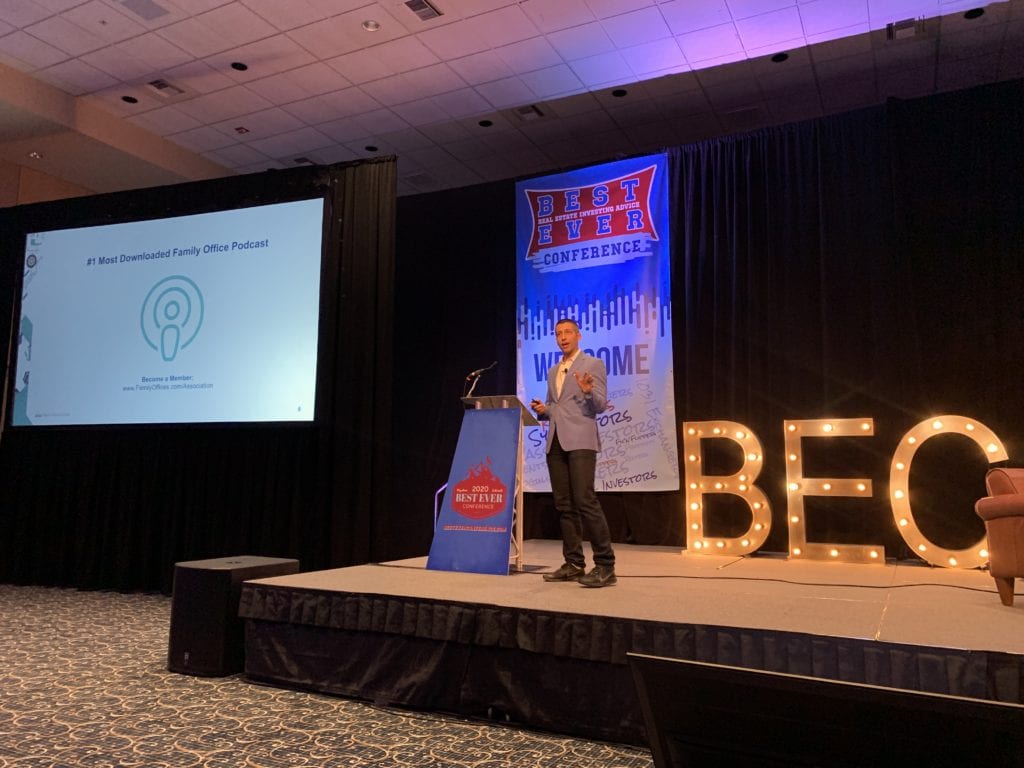
Speaker: Richard Wilson – CEO, Family Office Club
Lesson #1 From This Best Ever Conference 2020 Session: Play a unique game
Come up with a way to separate yourself from your competition. You need a hook. Are you offering a unique product? Or you marketing in a unique way? You need to figure out what you can do to differentiate yourself from the pack.
Lesson #2: Create a barrel of fish
One of Richard’s competitors sold their family office for $500 million. The business revenue didn’t support the $500 million valuation. Rather it was the network that was being purchased.
Revenue is great but having a barrel of fish – a strong network – is even more powerful and profitable.
Lesson #3: Find the choke point
When you find a situation in business where you or someone else struggles and you have a way to relieve that, it can be very profitable. Find out what someone’s pinch point is and create a business that solves that problem.
Capital Markets
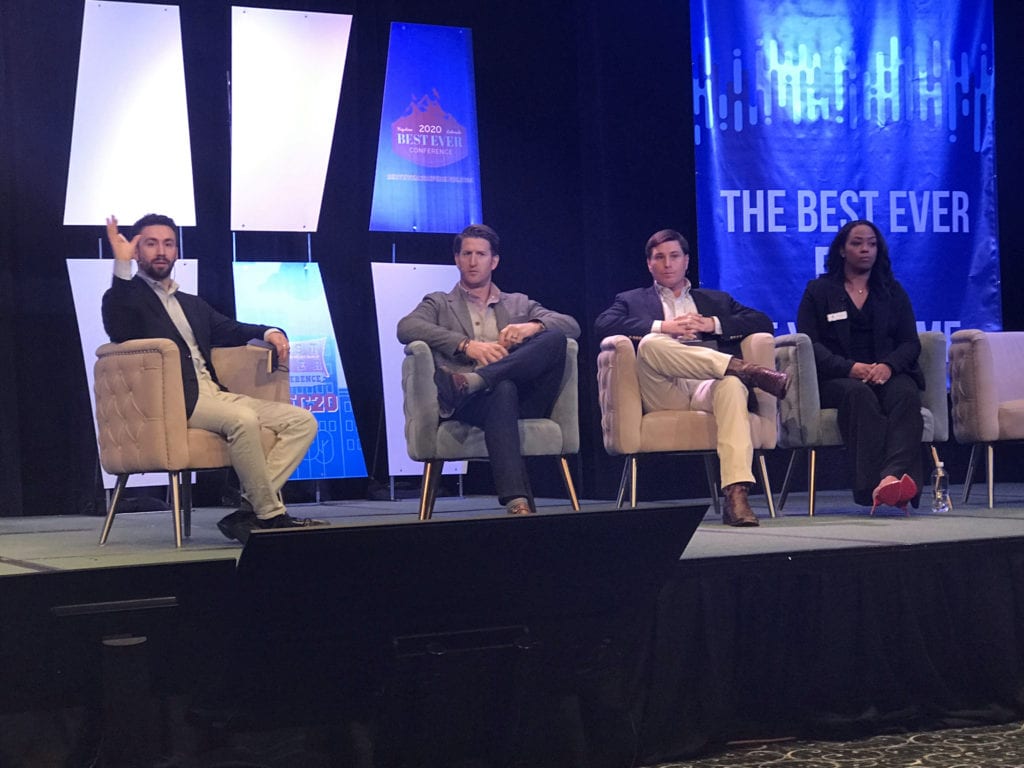
Speakers: Michael Bennet, Spencer Hough – Director, Newmark Knight Frank, Brandi Shotwell
Lesson #1: The biggest change in agency debt since the recent recession
Brandi says the biggest change since the bottom fell out in 2008 is more strict lending criteria. Anyone could get a loan in 2006 regardless of their credit score and income. Now, lenders want to do business with people that they know and trust.
Lesson #2: What you need to be attractive to private equity
Michael said that the first question an equity firm will ask him when evaluating a potential deal is “who is the syndicator and what have they done?” They will only invest in deals where the syndicator has a proven track record doing similar deals. And they are targeting mid to high teen IRRs and value-add, opportunistic deals.
He also said that family offices are the best fit for apartment syndicators. Family offices are more entrepreneurial whereas institutions are more difficult to work with.
Lesson #3: You can borrow money from more than just banks
Spencer focuses on helping investors line up non-bank capital. One solid option are life companies. They offer longer term (up to 40 years) fixed rate loans. Interest rates are as low as high 2%.
Breaking Down Waterfall Structures
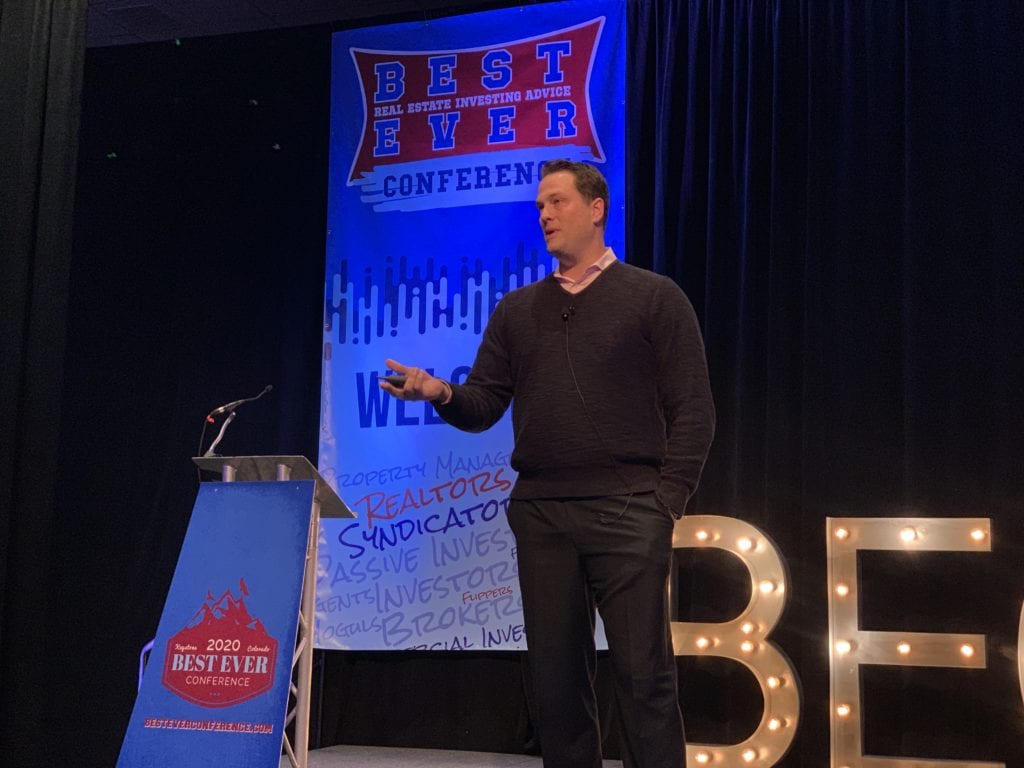
Speaker: Ryan Smith
Lesson #1: Tip for reducing taxes
Invest in GPs whose distributions are not always considered a return on capital but whose distributions are a return of capital. Depending on the source of the return of capital, it may not be taxable
The Pursuit of Value Investing
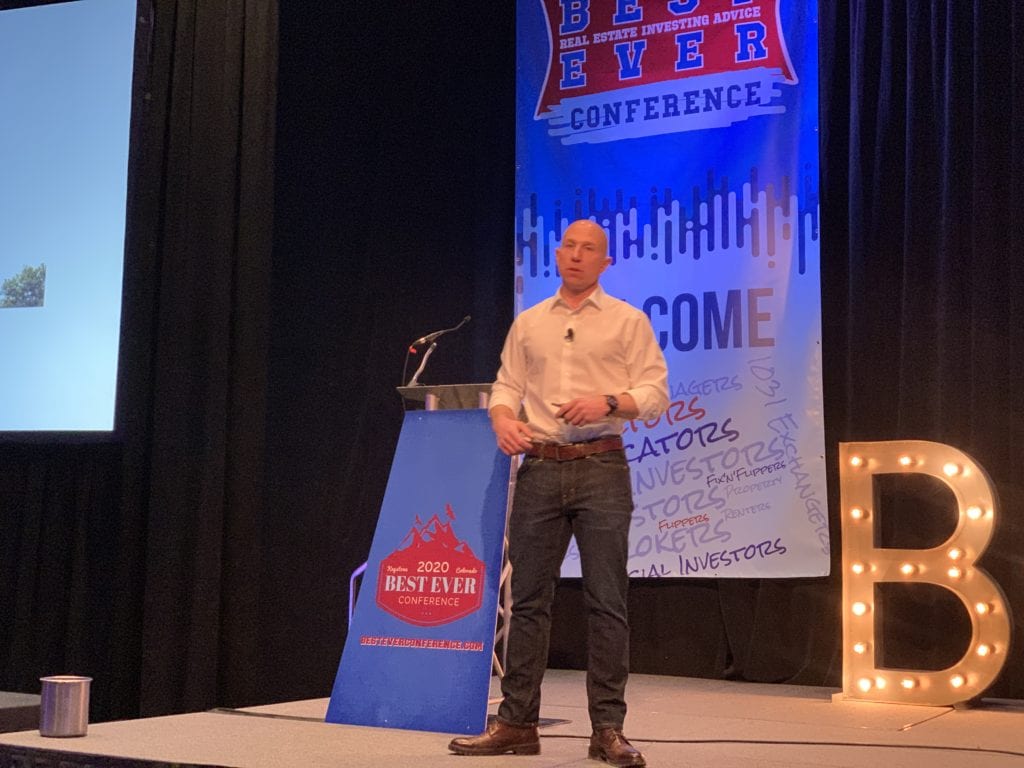
Speaker: Scott Lewis – Spartan Investment Group
Lesson #1: Tips on hiring the right team members.
Hire team members with experience, which is a combination of skill and luck. Focus on the skill sets your business needs and hire people with those skill sets. Team members must have good character so that they are ethical and responsible when a deal goes bad. Create a culture with a mission, a vision, and values to attract team members who align with that culture.
Lesson #2: Three questions to ask potential team members
What is your leadership philosophy? Tell me about a deal that went sideways and what you did? Tell me about your due diligence process?
Best Ever Conference 2020 Panel: Stories of Raising Capital

Speakers: Matt Faircloth, Neal Bawa, Ryan Smith
Lesson #1: We are transitioning from a LP market to a GP market
Ryan believes that we are transitioning from an LP-friendly market to a GP-friendly market. Margins are being pinched and are under pressure. As a result, he predicts that GPs will do less deals than they expect this year.
There will be more capital looking for deals than deals available. He thinks the 8% to 10% preferred returns will fall or go away entirely and that we will see more unique passive investor compensation structures in the near future.
Lesson #2: A track record isn’t required to raise capital
Neal says that it is a limiting belief to think that you need a track record to raise capital. No one would ever get started if track records were a prerequisite.
People do not invest in projects, they invest in people. It is the emotional connection you have, how candid you are, how well you come across, and how specific you are that matters.
If you don’t have a track record, tell a potential investor that if they invest with a syndicator that has 18 deals, they will get 1/18 of their attention and effort. If they invest with you, they will get 100% of your attention and effort and you are staking your entire business on this deal.
Lesson #3: Have transparency on social media
Matt says it is important to have transparency on social media because it allows you to build more trust with your investors. Matt shares the good, the bad, and the ugly of his deals on social media sites.
The other benefit is that someone can quickly vet him and his company. If someone Googles his name, they see all of the free content he has shared on YouTube and information on his company.
Lesson #4: You don’t scale by adding more content. You scale by repurposing content
Neal’s objective is to repurpose every piece of content at least 10 times. If he records a 1-hour podcast, he will create 1-minute videos and post them to YouTube. The best YouTube videos are pushed to investors and put into an ebook. The podcast and 1-minute videos are also shared on Facebook and LinkedIn. Etc.
Best Ever Conference 2020 Panel: Investing in Development Deals
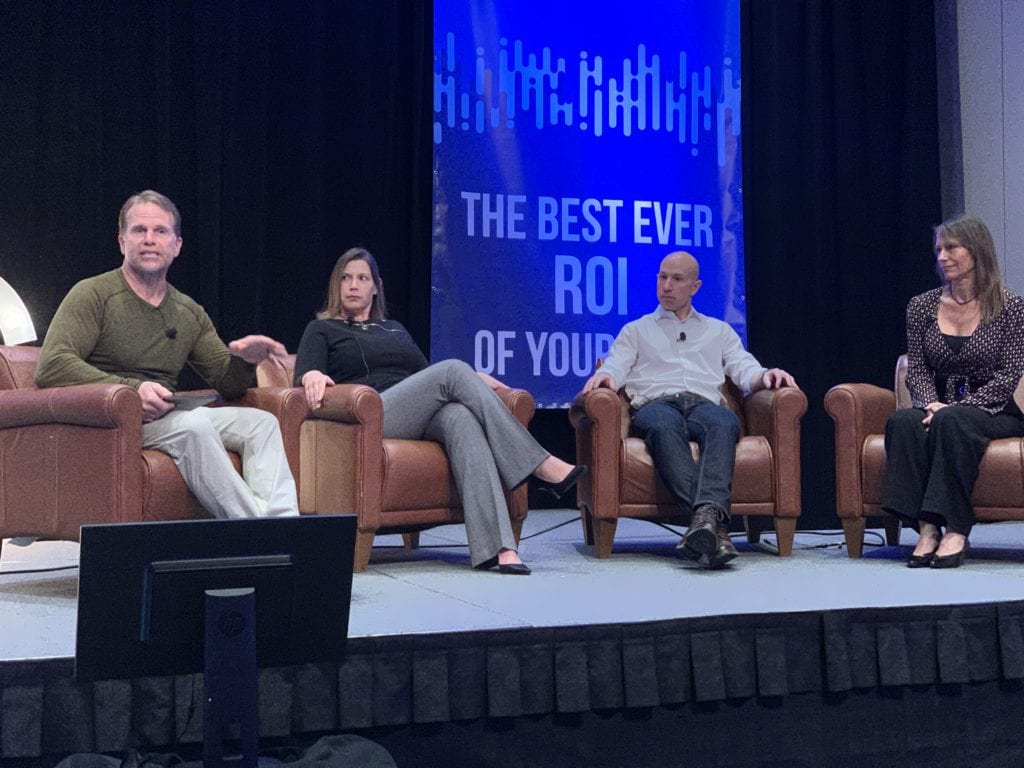
Speakers: Scott Lewis – Spartan Investment Group, Kathy and Rich Fettke – co-CEO and co-Founder, Real Wealth Network, Celeste Tanner – Chief development office, Confluent
Lesson #1: Key things a passive development investor needs to know
Development has a higher risk.
The success of the project is in the hands of the City Planner.
It is extremely important to understand the county surrounding the project. Within the county, it is the community surround the project that is the most important.
NextDoor has been very influential in getting information out about projects and stopping the spread of disinformation.
Lesson #2: Difference between entitlements and permits
Entitlements are for land use whereas permits are for building code.
2020 Real Estate Location Trends

Speaker: Neal Bawa – CEO and Founder, Grocapitus
Lesson #1: The Bible got it wrong by one letter
Neal says that it isn’t the meek who will inherit the earth but the geek. All of the world’s richest people are geeks. And all of the best real estate investing teams have a geek.
Lesson #2: Most people use data incorrectly
Neal finds that most real estate investors only use the data that supports their viewpoint and throw out everything else. The best geeks are the opposite. They use data to create their viewpoint.
Lesson #3: The top five metrics of the geek
Neal selects target markets based on what he calls Realfocus metrics.
Realfocus metric number 1 is population growth. Only invest in cities with a population growth of at least 21.25% between 2000 and 2017.
Realfocus metric number 2 is median household income. Only invest in cities with a median household income growth of at least 31.5% between 2000 and 2017.
Realfocus metric number 3 is median home values. Only invest in cities with median home values that have grown by at least 42.5% between 2000 and 2017.
Realfocus metric number 4 is crime levels. Only invest in cities with a crime level index calculated by CityData that has been gradually decreasing and is below 500.
Realfocus metric number 5 is 12-month job growth. Only invest in cities with a 12-month job growth above 2%.
Lesson #4: Two top markets you’ve never heard of before
The two markets that you have probably never heard of before that have consistently had a 12-month job growth greater than 2% are St George, UT and Yuba City, CA. Other top markets are Raleigh, NC, Reno, NV, Gainesville, GA, and Ashville, NC.
Underwriting & Asset Management
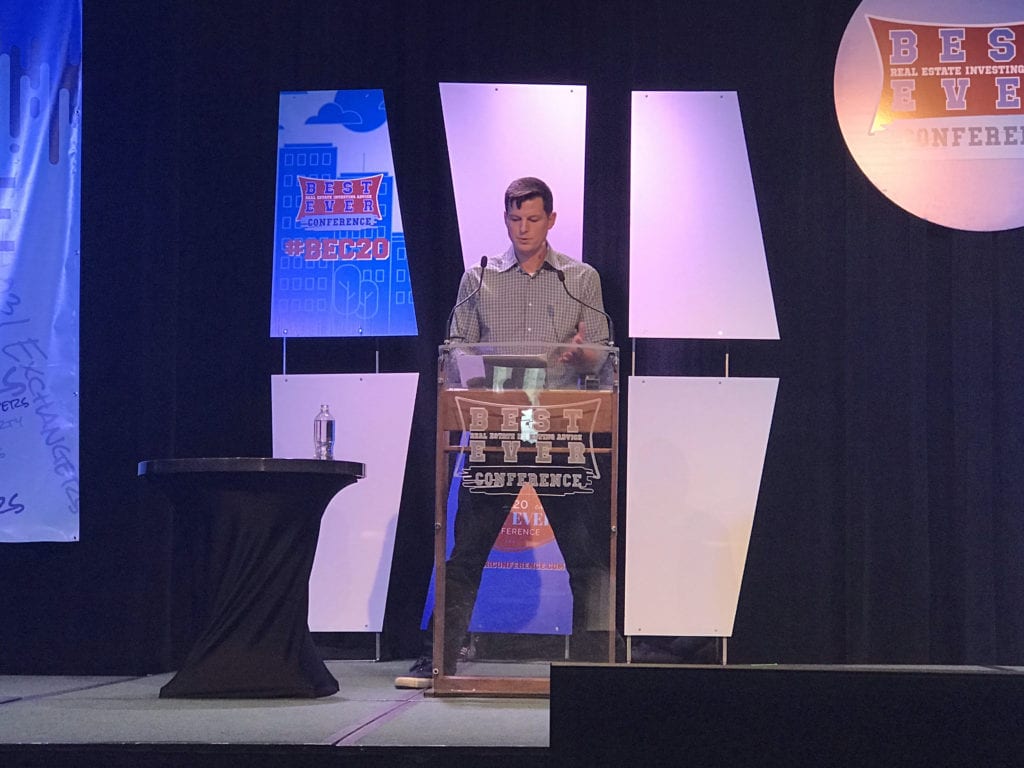
Speaker: Frank Roessler – President, Ashcroft Capital
Lesson #1: Why asset management is necessary even if you have a great property management company
First is that the biggest risk point is the execution of the business plan. Everything can be right – the right deal in the right market at the right price – but if you don’t execute the business plan, it will lead to disaster. There are hundreds of moving parts that need to be taken into account when executing a business plan, so you need an experienced and organized asset manager to execute the business plan successfully.
Second is that the property is your baby whereas the property management company doesn’t own the property. No one is going to care for your baby – the property – as much as you.
Lesson #2: Asset management duties when managing a single property
Monitor the key performance indicators, like occupancy, rents, evictions, bad debt, loss-to-lease, etc.
Manage the expenses. There is a range for each expense category and it is the asset manager’s responsibility to make sure that you are not overspending or underspending.
Manage and work with the staff. This includes email and phone call communication but also face-to-face meetings.
Oversee capital expenditures. Make sure the major capex projects are on-schedule and on-budget.
Lender communication. The asset manager communicates with the lender if you are required to cure certain deferred maintenance items, during a refinance or supplemental loan, or if you aren’t meeting your debt service obligations.
Improve the quality of life for your residents. Host events to make the existing residents happy so that they pay rent on time, pay more rent, stay longer, and refer other residents.
Lesson #3: Asset management duties when managing a portfolio
In addition to the duties from lesson #2, asset managers who manage a large portfolio have two extra duties.
First is managing scale. Implement a system of schedules and reminders, creating daily, weekly, and monthly to-do lists. Create an organized file sharing platform where each deal has its own folder and each project has its own subfolder. Delegate tasks to other team members because one person cannot wear all of the hats. Don’t become too emotionally invested. Celebrating win and use problems as a learning experience.
Second is implementing more sophisticated processes. Get a revenue management software like Yieldstar or LRO. Do a cost segregation analysis to accelerate depreciation. Hire a local tax protester to protest the taxes each year. Recapitalize rather than sell so that the taxes remain the same. Do 1031 exchanges into new, like-kind deals to defer taxes. Purchase interest rate caps on floating rate loans. Once you’ve done over $500 million in agency loans, secure a line of credit and use that line of credit to buy more deals to avoid prepayment penalties.
Lesson #4: Do’s and don’ts of asset management.
Crawl before you walk. Work with another institution or start small to gain experience before pursuing larger deals.
Know the best practices of property management so that you know if your property management company is doing a good job.
Work with experienced professionals. Hire people who have past experience rather than hiring young talent who have to learn on your dime.
Conduct weekly calls with your team and with your property management company.
Don’t forget about the residents.
Don’t reinvent the wheel. Follow the proven processes used by other successful apartment investing companies.
Don’t spread your staff too thin.
Don’t be a stranger. Make sure you are visiting your properties in-person once a month.
Next Level Portfolio Management
Speaker: David MacAlvaney
Lesson #1: The good
Unemployment is at a 50 year low. Wages are rising. Consumer confidence is high.
Lesson #2: The bad
Corporate debt is at an all-time high and is not being used productively. Executive confidence is low. The FED’s balance sheet is expanding.
Lesson #3: The ugly
The FED deficit. Banks are relying on central banks which is keeping the market together. Total debts are beyond unsustainable. The ratio of debt to GDP is 320%.
We are currently back to the SFR pre-recession prices when adjusted for 2020.
There is a 3.6% REAL return in the stock market.
Lesson #4: The case for gold
It is insurance against the uncertainty from the bad and the ugly. We are in an uncertainty trifecta: political uncertainty, geopolitical uncertainty, and uncertainty in the financial market.
Best Ever Conference 2020 Panel: Taking The Next Leap
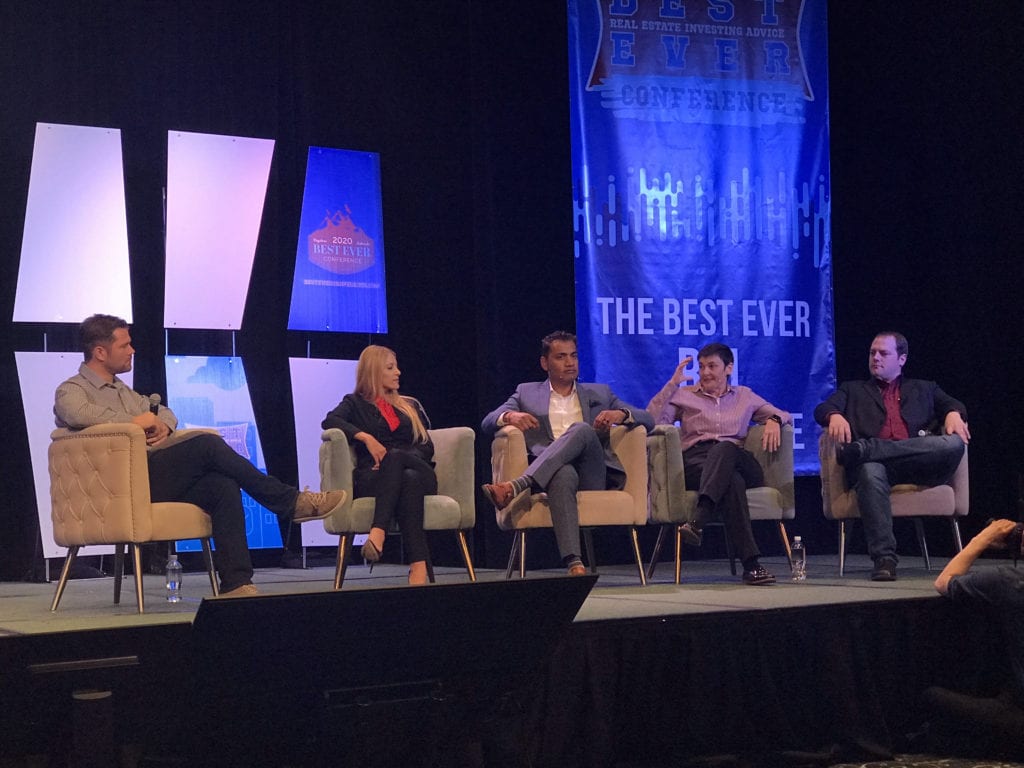
Speakers: Dan Handford – Managing Partner, PassiveInvesting.com, Ellie Perlman – Found and CEO, Blue Lake Capital, Holly Williams – General Manager, MQ Ventures, Vik Raya – Co-Founder, Viking Capital
Lesson #1: What not to do when taking the next leap
Dan said that he will not invest with a GP unless the sponsors work in the business full-time. He doesn’t want to invest with a part-time apartment syndicator. But before quitting your job and going into apartment syndications full-time, be a co-GP first to build your credibility and track record.
Lesson #2: Advice on quitting your W2 job to become a full-time real estate investor
Holly said that she made the decision to quit her full-time job when she was more passionate about investing than she was her job. However, even though she was making over six figures as a part-time passive investor, she was still afraid to make the leap. For her, it was about making a mindset shift as opposed to making a rational, intellectual decision to quit her job.
Lesson #3: The two ways to build relationships with brokers
Vikram spent three years building a relationship with brokers before he did his first deal. It involved conversations on the phone, flying to the market to meet with brokers in-person, wining and dining them, and reviewing their deals and providing feedback. He did everything he could to prove to the brokers that he was serious about closing on a deal.
More recently, Vikram was having a hard time being awarded a deal. He was invited to multiple best and final offer rounds but was never awarded a deal. Then, he decided to meet his brokers in person and gave them a bottle of Don Perignon. Within a week, he was awarded a deal.
Lesson #4: How to overcome last minute challenges
Ellie recently had a deal in Atlanta under contract that was at 98% occupancy. Five days before closing, she discovered that the occupancy had dropped to 82%. Due to the occupancy requirement of her lender, she lost the financing on the deal. Rather than cancel the contract and sue the seller, she renegotiated the purchase price with the seller and convinced the lender to finance the deal. Within 45 days of closing, she was able to increase the occupancy to 90% and was able to demand a higher rent on the newly leased units without having to renovate the units first.
Mindset Mastery for Passive Investing
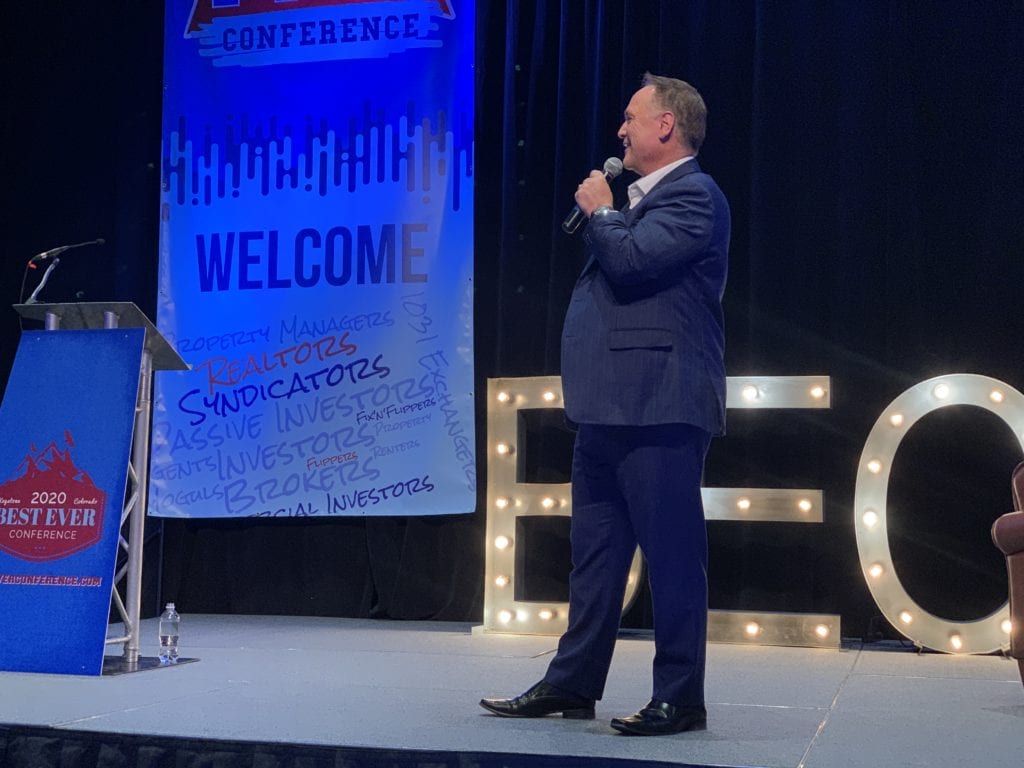
Speaker: Trevor McGregor – Peak Performance Coach and Business Strategist, Trevor McGregor International
Lesson #1: The four things you must continually check in with
Your mindset. Your values. Your rules. And your emotions.
Thoughts are the seeds of a garden and you reap what you sow.
Lesson #2: The six human needs
Certainty, uncertainty/variety, significance, connection, growth, and contribution. Which of these six are the reasons why you are investing?
Lesson #3: Know your emotional home
If you have a negative emotional home, you are moving away from something, like doubt, fear, and worry. You want to have a positive emotional home where you are moving towards something that you want.
A Holistic Investment Approach to Passive Investing
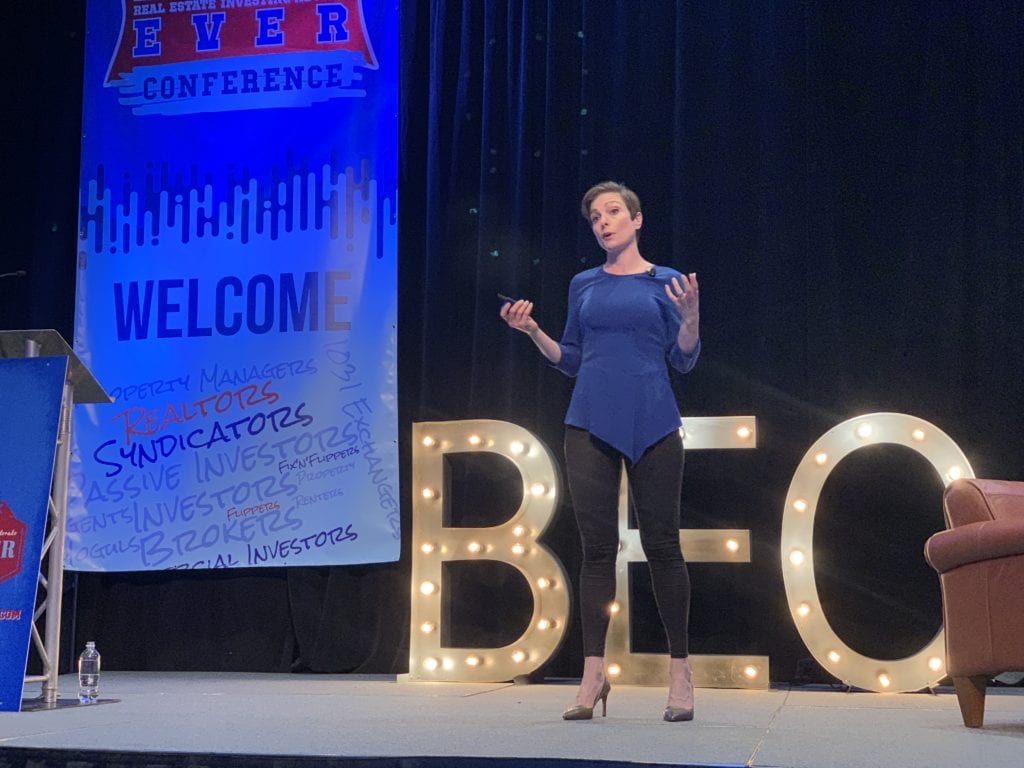
Speaker: AdaPia D’Errico – VP of Strategy, Alpha Investing
Lesson #1: Understand your intentions
Whatever your intentions are for passively investing should align with the intentions of the sponsors. The same applies to values. You must have the same values as the sponsors you chose to invest with.
This alignment is paramount to making money.
Lesson #2: Have a strong why
You need to have a strong and meaningful enough “why” to weather your doubts during a downturn.
Lesson #3: Intellect and instinct
You need to use your intellect and instincts when you are approaching a sponsor and a deal. You need to use your left brain to fact check the deal, using logic, reason, and analysis. And you also need to use your right brain to gut check the deal, using your institution.
Elite Capital Raising Webinar Strategies
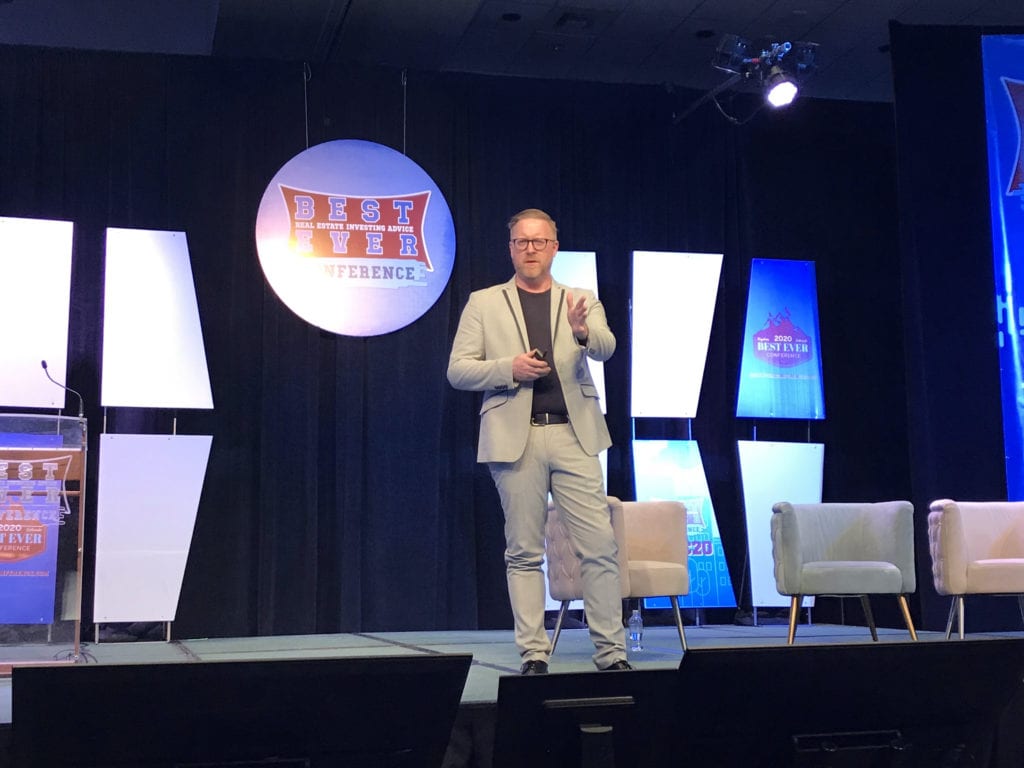
Speaker: Bryan Ellis – CEO and Host of Self Directed Investor Radio, SelfDirected.org
Lesson #1: The myth of rationality
Most webinars focus on the background of the team, the capital structure of the deal, the return projections, and details on the investment strategy. This is all important information to include. But people do not invest rationally, so this is not the information that will persuade them to invest in your deals.
Lesson #2: The alchemy of thought
People do not invest rationally. They rationalize.
First, they have an automatic response to the deal. This reaction is not in their control. It is automatic.
Next, they have an emotional stimulus. This is how they feel about what you are saying about the deal and what you are trying to get them to do.
Then, they think about the data and facts about the deal.
Once they’ve gone through the first three steps, they have their impression of the deal. They will go back over each of the three points, pick out the pieces that make the most sense to them and supports their impression, and ignore the rest. In other words, rationalization.
Then they decide.
Most webinars completely ignore the automatic response, the emotional stimulus, and the impression and only focus on the data and facts. But the data and facts are the least important or the last thing that is considered.
Lesson #3: How to get more capital commitments from fewer investors with less resistance and less time
Create questions in the mind of the prospects that can only be answered by reaching out to you. Don’t answer every single question.
Create urgency by design. Let them know why investing now will be better for them.
Have someone else tell the prospects why they should invest. This should be someone who is more credible than you like someone who is currently investing in your deals.
Click here to secure your ticket for the 2021 Best Ever Conference at the early bird pricing, which is a nearly 50% discount.
Disclaimer: The views and opinions expressed in this blog post are provided for informational purposes only, and should not be construed as an offer to buy or sell any securities or to make or consider any investment or course of action.



